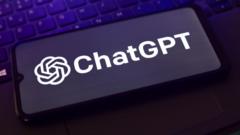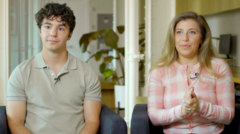The lawsuit claims that OpenAI unlawfully scrapes content from Canadian news organizations, seeking financial compensation and restrictions on future use, marking a significant step in the nexus of AI and copyright law.
Canadian Media Giants File Landmark Lawsuit Against OpenAI Over Copyright Claims

Canadian Media Giants File Landmark Lawsuit Against OpenAI Over Copyright Claims
A coalition of major Canadian news outlets has launched a pioneering lawsuit against OpenAI, alleging unauthorized use of their articles for AI training.
A coalition of Canada's largest news organizations has officially initiated a lawsuit against OpenAI, the parent company of the popular AI chatbot ChatGPT, contending that the technology firm has unlawfully utilized content from their publications to develop its AI models. Esteemed media outlets including the Toronto Star, Metroland Media, Postmedia, The Globe and Mail, The Canadian Press, and the CBC have united in this unprecedented legal action, representing what is reportedly the first lawsuit of its type in Canada.
In a joint statement, the media coalition asserted, “Journalism serves the public interest. The act of OpenAI leveraging journalism from other companies for its own commercial objectives is not only unethical but illegal.” OpenAI has countered these claims, explaining that its AI models are built using data that is available publicly. The company emphasized that its practices are compliant with the principles of fair use and international copyright norms, which are intended to safeguard creators while promoting innovation. In a statement to the BBC, OpenAI further asserted its commitment to collaborating with news publishers regarding content display and attribution in ChatGPT searches, along with providing mechanisms for these publishers to opt out of inclusion in its datasets.
In the 84-page legal filing, the coalition accuses OpenAI of disregarding protective measures such as paywalls and copyright disclaimers designed to hinder unauthorized access to content. The plaintiffs contend that OpenAI routinely infringes upon copyright laws and the terms of service applicable to online content, alleging that significant amounts of material from Canadian media were scraped to enhance ChatGPT’s capabilities.
The group is pursuing punitive damages set at C$20,000 (approximately $14,300; £11,000) for each article purportedly used without authorization, a figure that could potentially accumulate to billions in total compensatory claims. Additionally, the news outlets are seeking a court order that would compel OpenAI to share the profits generated from the use of their articles and to prohibit the company from future utilization of their content.
This legal action marks a pivotal moment for Canadian publishers, mirroring similar lawsuits in the United States, where notable entities like the New York Times have accused OpenAI of erasing pertinent evidence needed for legal proceedings. In an ongoing landscape of copyright challenges related to AI systems, the Authors Guild and prominent writers, including John Grisham, have also raised concerns regarding infringement of their works.
Recently, the Wall Street Journal reported that OpenAI's valuation reached C$219 billion after a new round of investments, underscoring the financial stakes involved in the emerging intersection of artificial intelligence and media copyright.

















